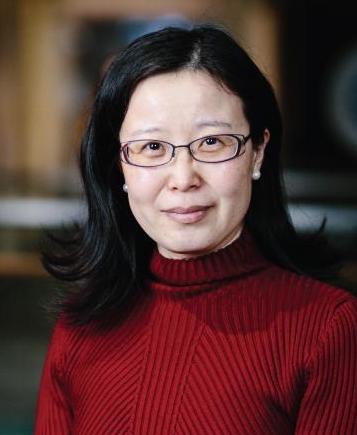Improving the reproductive health of dairy herds and strengthening economic analysis with data-driven insights are the aims of two newly named University of Guelph Research Leadership Chairs (RLCs).
Established in 2017, the RLC program celebrates mid- to late-career researchers who have received national and international recognition.
“The RLC program advances research excellence at the University of Guelph by recognizing outstanding researchers distinguished for their scholarship, leadership, and dedication to training the next generation of researchers,” said Dr. Malcolm Campbell, vice-president (research). “This year’s additions to our RLC cohort, Dr. Stephen LeBlanc and Dr. Yiguo Sun, enrich our academic community while also contributing to innovations in thought, practice and real-world impact.”
Each RLC will receive $45,000 over three years for their research, including training for students, post-doctoral researchers and other highly qualified personnel. Nominees are recommended by their respective colleges.

Dr. Stephen LeBlanc
Ontario Veterinary College
Dr. Stephen LeBlanc, Department of Population Medicine, studies the reproductive health of dairy cattle. His research improves the prevention and treatment of reproductive disease in dairy herds and has led to management practices that optimize health and fertility.
LeBlanc aims to provide workable, evidence-based solutions to concerns raised by farmers and veterinarians. He often collaborates with dairy industry partners and producers as well as colleagues at U of G and other universities.
LeBlanc has held numerous leadership roles at U of G and beyond. He is a founding member and the current director of Dairy at Guelph, a research centre that supports collaboration among more than 200 faculty and graduate students who conduct dairy-related research.

Dr. Yiguo Sun
Gordon S. Lang School of Business and Economics
Dr. Yiguo Sun, Department of Economics and Finance, specializes in econometrics, a branch of economics that uses math and statistics to uncover meaningful connections between different economic factors, such as income, employment, consumer behavior, and investment decisions. Econometric insights help shape policies and forecast economic trends.
Sun currently uses econometric approaches to study the impacts of geography and social networks on economic outcomes. Her recent projects explore how these factors affect regional development, Canadian residential housing markets, peer influence on student achievement, national trade agreements, and economic spillover effects between exchange-traded funds and individual stocks.
Sun is internationally recognized for her scholarly impact and leadership contributions to a field historically dominated by male researchers. She regularly publishes articles with a network of colleagues across the world and mentors early career researchers and students.
